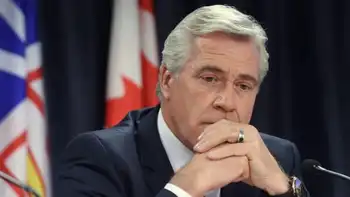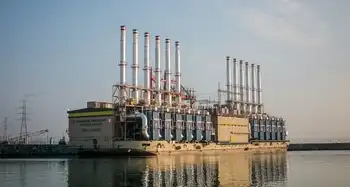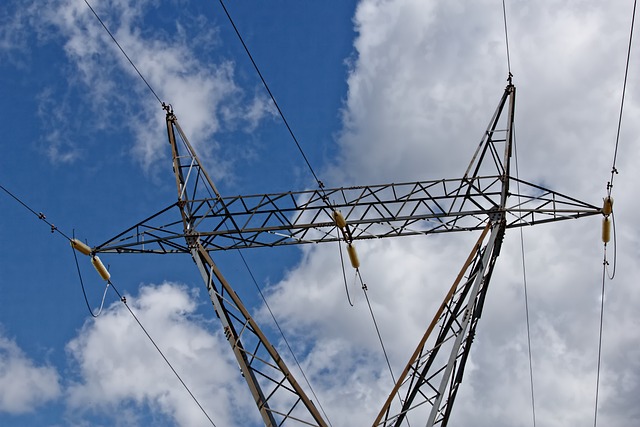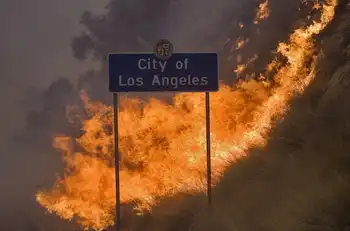U.S., Germany issue warning to Iran
MAINZ, GERMANY - U.S. President George Bush and German Chancellor Gerhard Schroeder insisted today that Iran not develop nuclear weapons, and the two discussed tactics on how to coax Tehran into giving up its nuclear ambitions.
"It's vital that the Iranians hear the world speak with one voice that they shouldn't have a nuclear weapon," Bush said at a news conference with the German leader. "Iran must not have a nuclear weapon, for the sake of security and peace."
Bush and Schroeder remain far apart on the subject of how to make Iran give up any plans it has to build such an arsenal, although both said they agreed that the end result must be a nuclear-arms-free Iran.
Schroeder sought to play down any differences the United States and Europe have in convincing Iran to abandon its nuclear enrichment program.
"Iran must not have any nuclear weapons," Schroeder said. ``They must waive any right to the production thereof."
The two spoke during Bush's nine-hour stop here during his trip to Belgium, Germany and Slovakia, where the president will meet Thursday with Russian President Vladimir Putin.
At a round-table meeting with young German people later, Bush said both he and Schroeder have a close relationship with the Russian leader, who is under criticism from the West for rolling back some democratic reforms.
"I expressed some concerns at the European Union yesterday about some of the decisions such as freedom of the press that our mutual friend has made and I look forward to talking with him about his decision-making process," Bush said.
Bush and Schroeder seemed resigned to accept differences between them on issues such as global warming and Iraq.
Germany did not support the U.S.-led invasion of Iraq, but Schroeder said, "That is the past."
"Now, our joint interest is that we come to a stable, democratic Iraq," Schroeder said.
Schroeder noted that while Germany has refused to go into that war-torn nation, it is training Iraqi security officers in the United Arab Emirates.
"We are very much interested in not just continuing with these things, but to also expand on those activities," Schroeder said, adding that Germany also would be willing to help the new Iraqi government draft a constitution or set up ministries.
Bush said Middle East peace was a major focus of their meeting. He vowed that the United States would be heavily involved in helping the Israelis and Palestinians obtain peace. "Because it is within reach it is vital for all of us to work together to help both parties achieve the two-state solution," Bush said.
Schroeder agreed, "I think there is hope today, and even more than hope possibly that we will come to a solution."
The two remain far apart, however, on Europe's desire to end a 15-year-old arms embargo on China. Bush has said that lifting the embargo, imposed after the bloody 1989 Tiananmen Square crackdown on pro-democracy activists, would change the balance of relations between China and Taiwan.
Comments about Iran dominated the news conference that followed their more than hour-long meeting.
Schroeder wants both sides to make concessions, including extending incentives to Iran for dropping its nuclear program. Such incentives would include membership in the World Trade Organization. Bush, in contrast, insists that Tehran must not be rewarded for breaking the non-proliferation treaty that prohibits it from making nuclear fuel.
Bush also contends that Iran should not be given any incentives from the West as long as it supports extremist groups inside of Israel, such as Hezbollah, which the United States has placed on its list of groups sponsoring terrorists.
"They were caught enriching uranium," Bush said, remaining firm on his insistence that Iran not be rewarded.
"They have breached a contract with the international community. They're the party that needs to be held to account, not any of us," he said.
Bush also reiterated that Syria must remove its forces from Lebanon, noting that the United States and France were seeking a UN resolution to force Damascus to do so, following increased tension after last week's assassination of a former Lebanese prime minister.
Security for Bush's visit was so tight that nearly every street in downtown Mainz was closed to traffic and barricaded. Bush also was to visit a museum displaying the world's first printing presses, meet with young German entrepreneurs and address U.S. troops at nearby Wiesbaden Air Base.
About 500 people braved wet snow and the heavy security in Mainz protest Bush's visit.
A recent AP-Ipsos poll showed overwhelming Germany skepticism of Bush — about four in five Germans say they don't agree with the president's determination to promote democracy around the world.
Related News
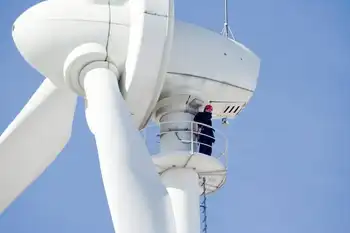
Leading Offshore Wind Conference to Launch National Job Fair
WASHINGTON - The Business Network for Offshore Wind, the leading non-profit advocate for U.S. offshore wind at the state, federal and global levels, will host its seventh annual International Partnership Forum (IPF) on April 21-24, 2020 in Providence, Rhode Island.
New this year: the first-ever national offshore wind industry job fair plus a half-day workforce development summit, in partnership with Skills for Rhode Island’s Future. The OSW CareerMatch, will showcase jobs at top-tier companies seeking to grow the workforce of the future and recruit qualified candidates. The Offshore Wind Workforce Development and Education Summit, an invitation-only event, will bring together educators,…

